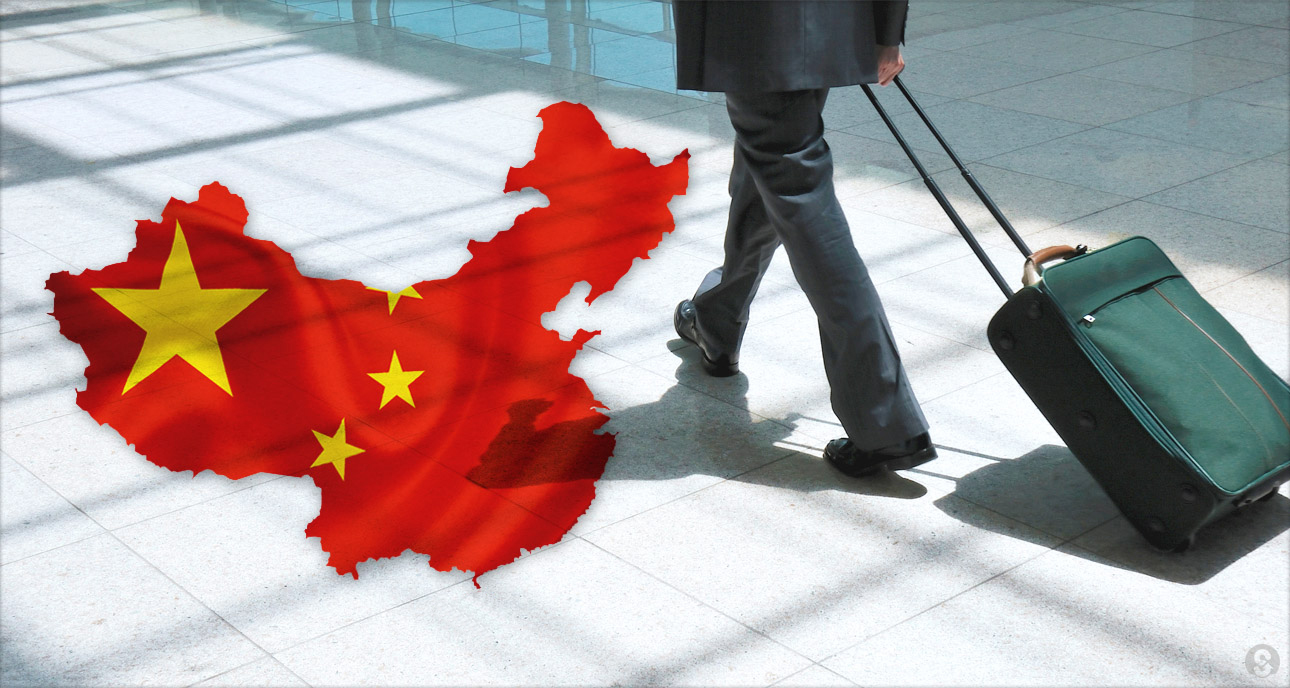Business in China: An NAI Guide to Chinese Business Culture Part I

As we all know, there are significant differences between the western and the Chinese culture. Unfortunately for most North American businesses, the lack of understanding of the Chinese business culture often intimidates them from doing business with China. It doesn't have to be this way. To help you get started, here is a short guide that will give you a quick glance at how business in China works.
What the Chinese people talk about in casual discussions
From the Chinese perspective
It all depends on the context of the contact. If it is a business meeting, focus on business; if it is a social meeting, focus on family. Similar to what is done here in Canada, one can always start with comments about the weather, then listen and go from there. E.g., In a business meeting, start with the weather or the drive, and the road condition, then asks how is work. It is a good way for you to start doing your assessment.
When discussing the family, you will make your Chinese partners feel very special when you make a point to ask about their children, (e.g., how old they are, what do they do, etc.). They are very proud of their children. If suitable, also ask about the health of their parents. Taking care of one’s parents is a priority in the Chinese culture.
Although you may have heard that Chinese people are very shy, they do not maintain eye contact, they do not have firm handshake, and they do not show their emotion, etc., you may have different findings in your experiences. The Chinese society is changing, especially with the newer generation. Be flexible in your approach, ... listen and respond according. One thing that never changes is to the need to show your RESPECT when you communicate with your Chinese partners (especially the elders)—I do not mean traditional bowing and kneeling, etc. If you are not sure, always ask your questions before you act on any assumptions.
Subjects to avoid would be sex, family planning, female reproductive health issues, and mental health problems. These are considered as taboos and very personal and are not for discussion in public.
Use humour wisely and appropriately. Your Chinese partners do appreciate humour and jokes if they understand them.
From the Western perspective
People in China tend to keep a distance when speaking to someone for the first time, but the distance may become closer as a relationship progresses. Eye contact is important, but touching is not expected, especially on a first meeting. In formal social situations, a handshake is sufficient.
A non-local may be surprised by the way in which his or her responses elicit laughter. This is sometimes the case at first meetings. In this case, the laughter may simply be the result of nervousness or excitement at first contact.
How to use verbal and non-verbal communication in China.
From the Chinese perspective
Maintain the same distance as you would in western society. In general, people tend to move away if the personal space is too threatening for them. However, if you are very intimate with strangers, (i.e, less than 2 feet away that one could feel your breath), you need to keep a farther distance from your Chinese partner.
Handshaking is a common practice for both men and women in China unless you are meeting people from the ethnic minority groups in China (e.g., tribes in remote areas). Once you are considered as a "friend", you will find that men will hold hands with men and women would hold hands with women and walk on the street. This may be "weird" in the west, but it is a common, friendly practice for young people/adults in China.
The key is to observe, watch what others do, and then you can decide if you are comfortable to do it. Once your Chinese partners understand where you are coming from, they would not be offended. So communication and respect from both sides are the key for a good relationship.
In a business contact, there is usually no touching involved. Hugging to say goodbye like what Canadians do here is also not a practice. Using handshakes for greetings and to bid farewell is the safest way as a start.
Definitely eye contact should be maintained (not staring) when you speak to your Chinese Partners. Not maintaining eye contact is a very old Chinese practice—when low class citizens met the Royal families—in those days, citizens were not even allowed to have their houses higher than those built in the palace! So time has changed.
If you are conducting a group discussion/teaching, etc, being a "leader/expert" in a formal setting (i.e., if the leaders are there), you must maintain yourself as a leader, and speak in a very direct manner and be in command of the group (though they like group interaction/discussion). Never sit on the table or slouch when you are in a discussion or meeting. How you as a "leader" present yourself when working in the Chinese environment is very important.
Chinese leaders tend not use a lot of hand gestures or facial expressions when they speak. They are accustomed to reading from their speeches, and most of the time, their audience would not pay full attention to these speeches. My Chinese audience told me that they like Canadian presentations, as they tend to be more interactive. My view is that use your body language effectively to help deliver what you intend to do.
When you are working with Chinese leaders, always let the leader lead you: re-where you should sit, when to speak and what to speak. You may discuss your agenda with the Chinese leader before hand. But once the leader is in the group, you let the leader lead.
From the Western perspective
China is the third largest country in the world (Canada being the second-largest), and it is often the case that people working in a particular city aren’t born and raised in that city. So a good topic of conversation for a first meeting would be "What part of China are you from?" The "hometown" is often a topic of pride and it’s also an important way for a non-local to understand the diversity and interests of people from China.
Depending on the non-local’s work relation to the person being asked, work is a good discussion topic. If the non-local is working in a position of authority (i.e., a foreign manager or colleague) don’t expect direct answers about the organization under discussion. On the other hand, China has undergone incredible social and economic changes in the past two decades, changes that elicit much general discussion and interest.
The family is a very important social unit in China. However, it’s better not to ask a question like "Are you married?" since marital status can be somewhat sensitive for the person being asked (although there is a good chance you will be asked such a question, and in that case asking such a question would be no problem). A general question like "Do you have family in this city?" might be more appropriate for a first meeting.
Food is a good topic of discussion.. Like the topic "hometown," China has very varied and rich culinary traditions including hometown and regional variations.
Politics should be avoided on a first meeting. There are many sensitive political issues in China best avoided on a first meeting. Political, like cultural perspectives, take some time to get used to.
Humour is important and much appreciated in China. For a non-local in China, misunderstandings abound, and there is plenty of cause for self-effacing anecdotes that highlight the sometimes awkward position of a newly arrived foreigner.
How the Chinese people display their emotions
From the Chinese perspective
It is very common for the Chinese to display their happiness and keep the anger, criticism, and sadness within and share only with their families and close friends. Men also have a more difficult time to express their negative emotions to females. The Chinese leaders could display their emotion more at ease than their workers. Even when discontent, the Chinese workers tend to obey. Canadian representatives need to present themselves as professionally as possible. There may just be situations that you will have to let your Chinese partners know that you your feelings.
On the streets of China, especially in the markets or various neighbourhoods, you may encounter loud outbursts and even fighting. This is fairly common and may frequently involve women.
From the Western perspective
Public displays of emotion aren’t acceptable but nor are they uncommon in China. In more formal situations like banquets and meetings, public displays of affection aren’t acceptable, unless one is offering a toast, for example. However, expressions of emotion are very important in China, especially within the context of well-established relationships (business or personal).
***Disclaimer
You may disagree with or object to the content of some responses. This is to be expected given the complexity of the subject and the problems associated with speaking generally about an entire country and its people. We would encourage you to share your experiences.
Source: Global Affairs Canada-Cultural Information

Got something to say?